Early this year, I managed to persuade my parents to get a vermicompost kit. Before that, I mostly threw fruit and vegetable peelings in an open heap in my garden, which irked my parents, as they said it attracted the odd rat to our home. I still toss some vegetable offcuts into the garden, but only the ones which do not attract vermin, such as onion and leek, and orange peel. This helps to repel cats from the garden, their presence is not welcome by my chickens.
Waste management is an issue that we all need to be mindful of. Most people think about their trash for as far as the eye can see, and that it is something that will take care of itself. All our trash in Singapore is incinerated and then disposed of at Pulau Semakau, but even that is slowly running out of space, and soon we will need to find more land to bury Singapore’s waste.
But that is not the real solution, we really need to cut waste at its source, which includes buying products with minimal or no packaging, and by minimising what we throw away by repairing, reusing, upcycling and/or recycling what we can. Food waste is another issue that needs more attention, and to find out more about what we can do in Singapore, visit the Save Food Cut Waste webpage.
Rather than dispose of our fruit and vegetable peels, we can compost them in a few ways to get nutritious soil amendment which you can use on your plants. To find out more about the merits of composting, and what you can compost, here is a great resource. For apartment dwellers, the best options are vermicomposting and the Bokashi bin or Urban Composter, as they do not take up much room, or a simple DIY version can be found here. For those who have a garden, larger composting units are available; there is the Tumbleweed Compost Maker or you can create your own bays for composting. To find out your composting options in Singapore, and the costs, see here.
A vermicompost system comprises of worms and is more suited to those who have moderate amounts of raw fruit and vegetable scraps. Worms don’t like oil, salt, meat, dairy, onions and citrus, so this system is not appropriate for those who plan to compost food of this nature. As a result, you will have worm castings and worm leachate for use on your plants. Both contain micronutrients and beneficial microbes that help with soil conditioning.
Vermicomposting has a three-fold benefit for me. I can compost my fruit and vegetable peelings, I get worm casting as compost, as well as worm tea, a liquid fertiliser. I got mine from Terracycle.
Of course if you don’t like worms, there is always the Bokashi Bin or Urban Composter. Once full, the bin is sealed and left to pickle for around 10 -14 days, and is turned into pre-compost. At this point, it is still too acidic to be added to plants, and needs further composting for at least two weeks for it to neutralise. During the composting process, leachate is also produced and can be diluted and used as a nutrient booster for plants.
My friend Bhavani Prakash demonstrates on her wonderful blog – Eco Walk the Talk – how to make your own compost bin using container pots, see here. They can be used indoors or outdoors, but sun exposure and moisture helps to speed up the break down process.
Another way to turn fruit and vegetable peelings into another useful resource is by fermenting it for three months in water and molasses. During this time, it will be transformed into “garbage enzymes” and it can be used as a household cleaner or liquid fertiliser. To find out how to use it, see here.
I have to admit that I’m quite partial to worms, but for fruits and vegetables that have gone off, I put them in a container pot. I make sure I give my worms the best food possible, mostly spray-free or organic. Maintaining a vermicompost is easy. Here’s a closer look of what the bin looks like after I dug into it a bit.
I place damp newspapers between layers of fruit and vegetable peelings to keep their bedding moist. It also ensures that ants don’t move in. Worm bins should not smell, mine smells pretty good!
What I look forward to doing each week is collecting worm tea. I dilute it for use on my plants. According to Terracycle’s website, one should dilute it with aged water at a ratio of 1:100. I’m thinking of selling my excess worm tea in the near future, seems like it is worth a fair bit.
If you don’t already compost, I hope you’ll consider it after reading this post!

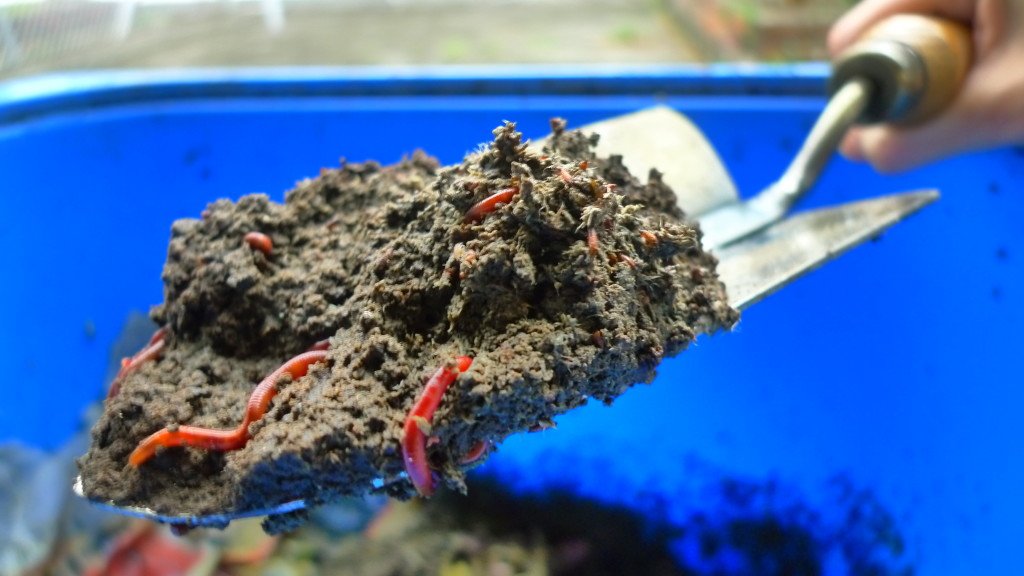
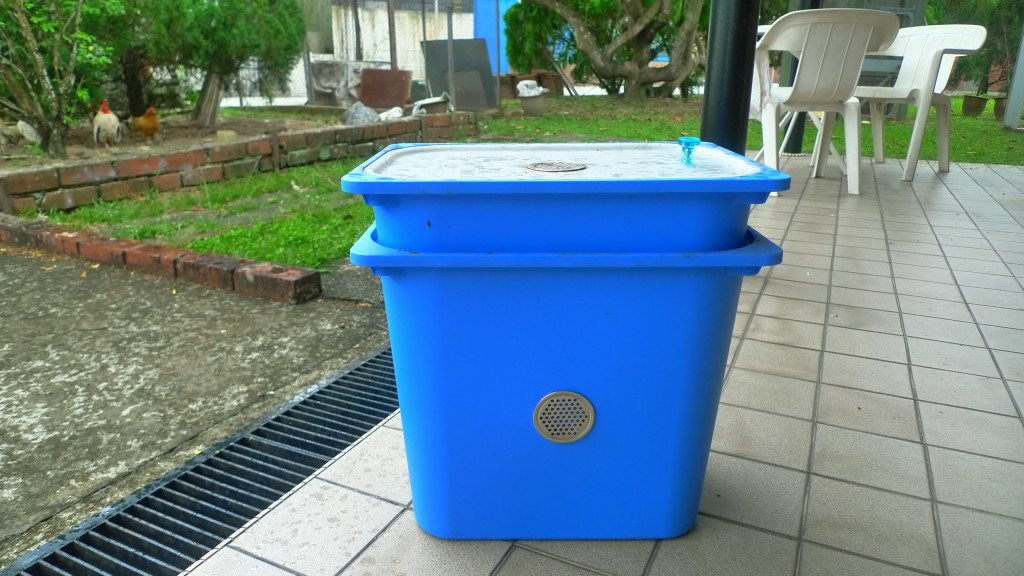
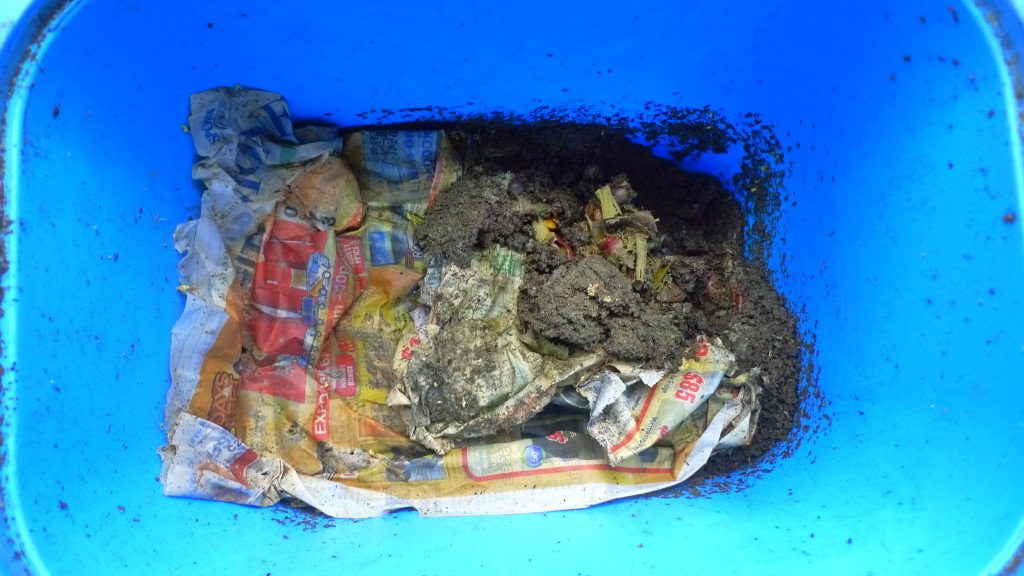
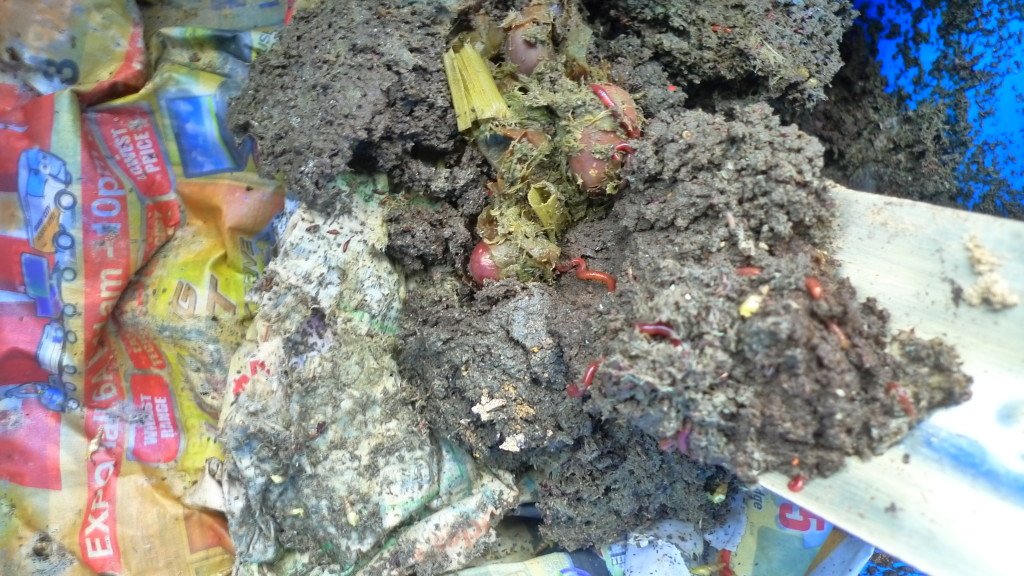
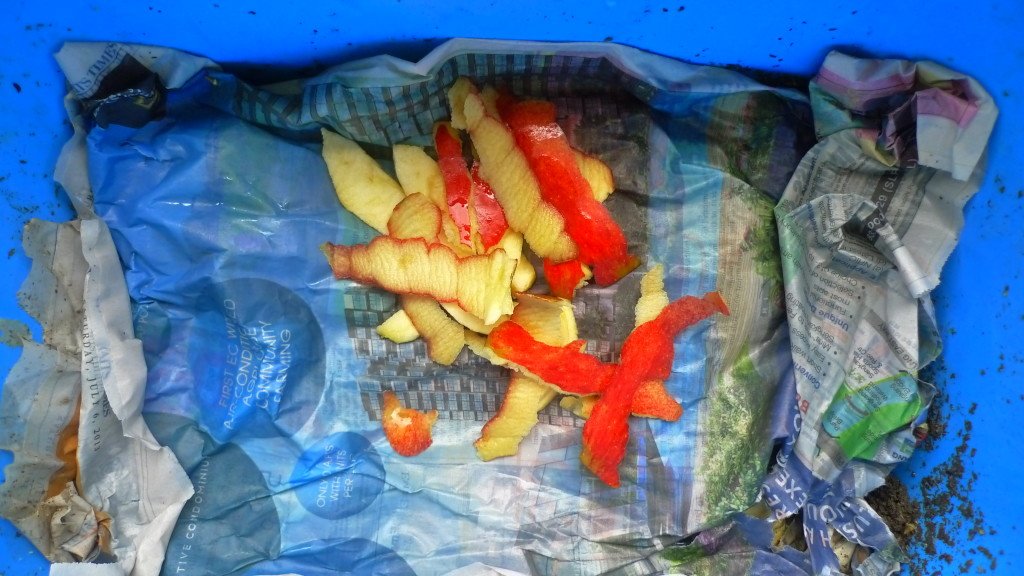
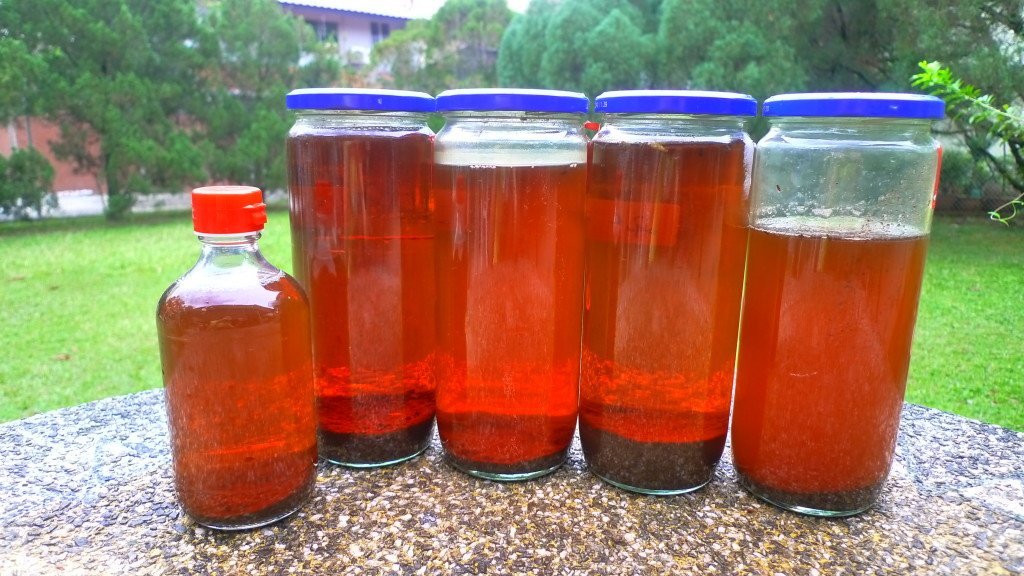
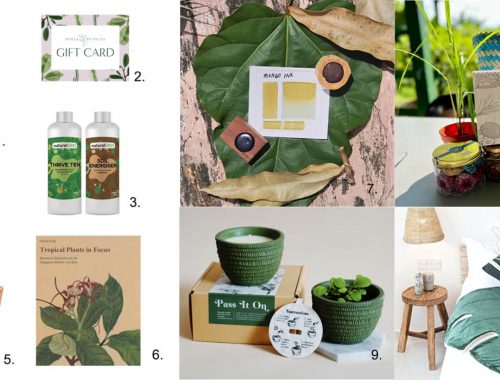
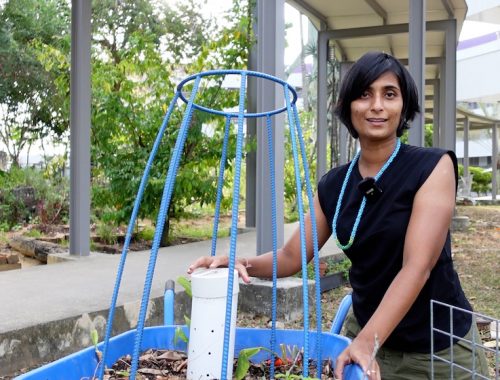
6 Comments
Amazing resource. If you dont mind sharing, how long did it take you to collect that amount of worm tea?
Hi Joe, that took me around two and a half to three months I think. Each large bottle is equivalent to a litre. These days they are a bit slower, I think it has to do with the explosion of snails and other critters in the worm bin.
Hi, are you up to share some of your worms to start a new colony?
We moved to Singapore recently, and we had to leave our little friends behind, for free.
And now, our garbagges are so big because of that, that I want to do it again ASAP.
So I’m looking for someone willing to share. In my philosophy, worms should be exchange for free. I didn’t do anything to make them grow, so I didn’t ask for any money when I gave them.
If you have tricks or know someone, let me know.
Best regards.
Hi Alter,
I’d love to share some of mine, but my bin has a lot of snails and some other critter in it, which came with the bin (grr). I might have a friend who can share worms, but they’ve just had a baby so it’s probably not the most convenient time. Could you email me at lambchopra(at)gmail.com and I’ll get back to you on this?
Hi Olivia! Only just stumbled on this post from long long ago!
How’s the vermiculture journey going on these days? Did you find it sustainable in Singapore’s climate?
Shaun
Hi Shaun, it is going well although I now favour an in-ground compost, and yes Singapore is perfect for vermiculture, they just need to be kept in a cool place, although this is definitely more challenging in this climate 🙂